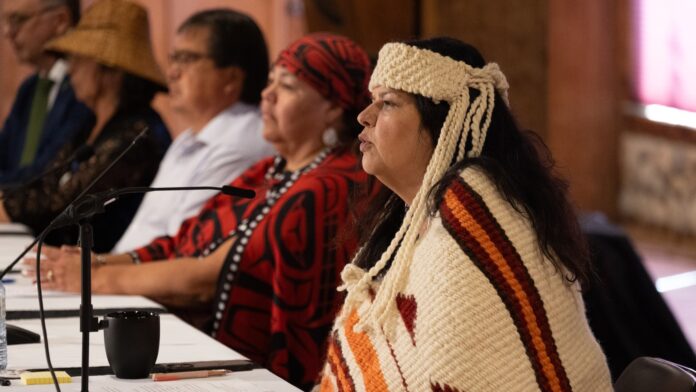British Columbia intends to appeal a decision by the province’s top court in favour of the Quw’utsun First Nations in their land and fishery claim in Richmond.
The B.C. Supreme Court ruled on Aug. 7 the Quw’utsun First Nations have Aboriginal title to the lands at their Tl’uqtinus village site under Canada’s Constitution Act of 1982 and the right to fish the south arm of the Fraser River.
The First Nation called it a historic victory, but B.C.’s Attorney General Niki Sharma said Monday there were significant legal issues with the ruling.
“We disagree strongly with the decision,” said Sharma. “British Columbia will be filing an appeal and seeking a stay to pause implementation until the appeal is resolved.”
The trial began in September 2019, and centred on the nearly 7.5 square kilometres of land where a former village once stood on the south shore of Lulu Island, now within the city of Richmond.
The land was taken away during the 1870s. It’s currently owned by the federal Crown, the Vancouver Fraser Port Authority (VFPA), the City of Richmond, and private third parties.
Cowichan Tribes, Stz’uminus First Nation, Penelakut Tribe, and Halalt First Nation were plaintiffs in the case, supported by Lyackson First Nation.
The federal and provincial governments opposed the claim, as well as Richmond, the VFPA, Tsawwassen First Nation, and the Musqueam Indian Band.
The court ruled the titles and interests in the lands held by Canada and Richmond are defective and invalid, except for the Vancouver Airport Fuel Delivery Project Lands.
The B.C. Supreme Court also said the province has a duty to negotiate in good faith regarding property within the claim area that is held by third parties.
“This ruling could have significant unintended consequences for fee simple private property rights in B.C. that must be reconsidered by a higher court,” said Sharma in a statement.
“Our government is committed to protecting and upholding private property rights, while advancing the critical work of reconciliation. This case is an example of why the Province prefers to resolve land claims through negotiation – where we can protect property rights directly – rather than risk considerable uncertainty through court decisions,” said Sharma.
She said her legal team is analyzing the ruling, and the province will release updates on the process in the future.
Closing arguments wrapped in the fall of 2023, after more than 500 days of testimony that included oral history evidence, historical documents and ethnographic evidence.
Musqueam Indian Band said following the ruling its Chief and Council were “deeply offended” by the decision.
“Leadership and our entire community fundamentally disagree with the court’s decision to ignore traditional governance practices which have guided intercommunity relationships since time immemorial,” the band said in a statement.
It said it would continue to vigorously defend its rights and the band would consider its next steps with its legal counsel.
Tawassan First Nation said in a social media post last week it’s also reviewing the decision and would update members as more information becomes available.
Something going on in the Prince George area you think people should know about?
Send us a news tip by emailing [email protected].







